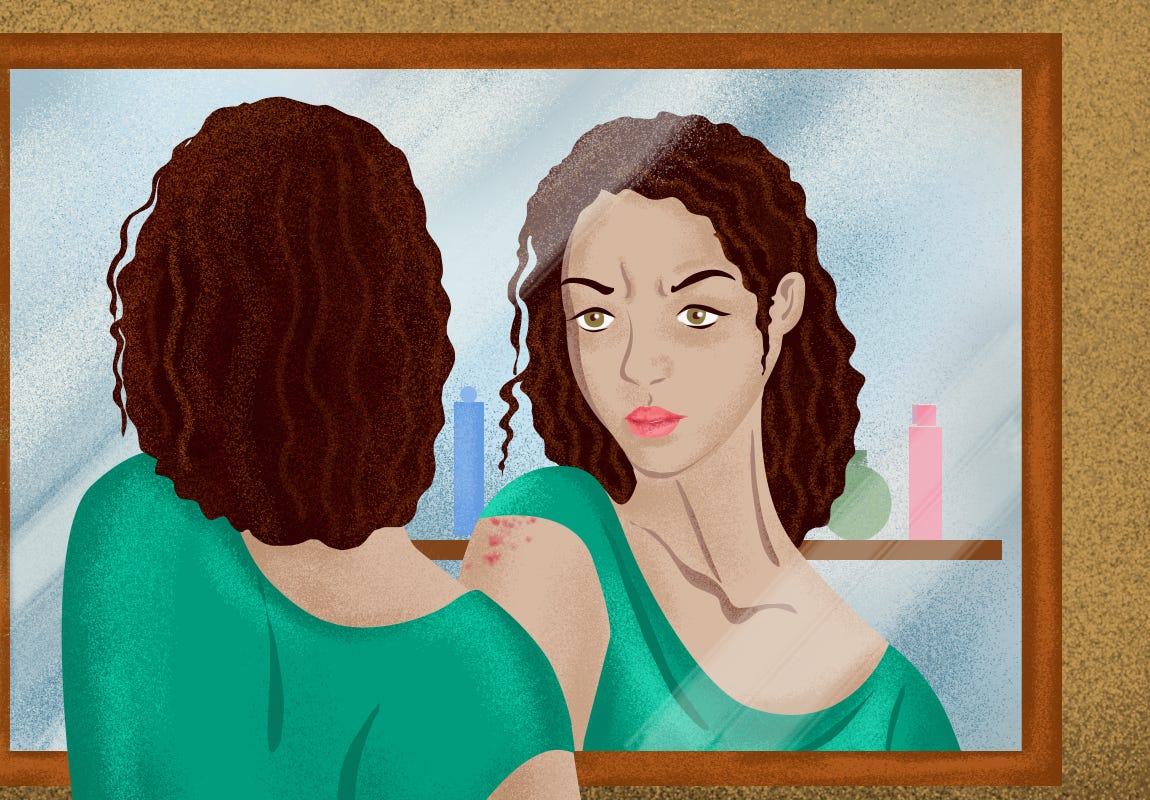Body dysmorphic disorder (BDD) is a serious illness in which a person is excessively concerned with their appearance, or minor or imaginary physical flaws in the body. Most of us are concerned about our appearance at times or are dissatisfied with some aspect of our appearance, but these concerns rarely affect our daily lives, such as whether we go to work or school. People with BDD constantly check their appearance in the mirror, try to conceal their perceived flaws, or worry about it for at least an hour a day, and this worry interferes with their life in some way. Women with BDD may be concerned about any aspect of their body, such as acne or another skin problem, a scar, or the size and shape of their breasts.
Among the symptoms of BDD are:
Being preoccupied with minor or imaginary physical flaws that are usually invisible to others
Having a strong conviction that you have a flaw in your appearance that causes you to be ugly or deformed
Having a lot of anxiety and stress about the perceived flaw, and devoting a lot of time to it
Picking at skin all the time
Checking your appearance in the mirror and grooming yourself excessively
Keeping the perceived flaw hidden
Constantly comparing your appearance to others to the point where it becomes your primary focus or concern
Constantly seeking reassurance from others about your appearance and not believing them when they pass a compliment to you
Getting cosmetic surgery done but being dissatisfied with the results
Diagnosis
People with BDD may struggle for some time before coming forward and seeking help to avoid appearing vain or not being taken seriously by their healthcare provider. Even so, they frequently disclose their concerns to a healthcare professional other than a psychiatrist or other mental health provider, such as a dermatologist, reconstructive surgeon, or dentist.
People with BDD frequently fear judgement from others, even when their level of distress is so severe that it has a negative impact on their quality of life and relationships.
The following criteria must be met in order to be clinically diagnosed with BDD:
Obsession with appearance. Not only must the individual be preoccupied with one or more perceived flaws, but it is also critical to note that the focus of their attention is on a minor flaw, something barely visible or noticed by others, or something non-existent. To be considered "preoccupied" with the perceived flaw, the individual would have obsessive thoughts about their flaws for hours on end.
Repetitive behaviour: To "fix" the perceived flaw, the person must engage in repetitive behaviour. The repetitive behaviours are displayed in an attempt to conceal, fix, or respond to the obsessive thought's focus. For example, someone may excessively look in the mirror, pick at their skin, change their clothes, reapply makeup, or seek reassurance from others.
The obsessive thoughts and repetitive behaviours must be clinically significant. In other words, the person's distress must be severe enough to significantly impair their quality of life. These thoughts and behaviours must have a significant impact on a person's social life, occupation (school or work), and other important areas of their life.
Body dysmorphic disorder is easily misdiagnosed; so, a thorough diagnostic assessment by a properly trained clinician is essential to avoid misdiagnosis.
Now put on your thinking hats and think about the following questions for a couple of minutes.
How would you explain the term “body dysmorphic disorder” to your students?
Can you think of some factors that may contribute to body dysmorphic disorder?
Write down your thoughts and discuss them with your students, children, and your colleagues. Listen to their views and compare them with your own. As you listen to others, note how similar or different your views are to others’.
Thank you for listening. Subscribe to The Scando Review on thescandoreview.com.
Happy Teaching!














Body dysmorphic disorder